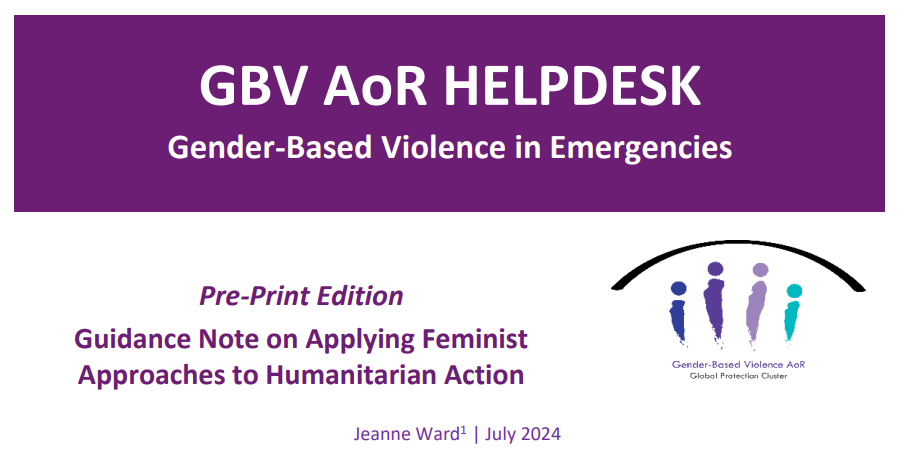
Beyond specific efforts to address GBV, this paper considers the question of whether feminist theories and principles hold the potential to help the humanitarian system better meet many other of its highest priorities. The paper begins with a basic primer on feminist theory—what it means, where it comes from, why it is useful, and what its core principles are. It then provides a review of some of the ways in which feminist theory is already informing humanitarian policies and approaches, to illustrate that the value of feminism, and undertaking feminist-informed action, is not a new concept in humanitarian response. The paper then considers the benefit of feminist methods in realizing some of the most pressing humanitarian thematic agendas. It moves on to explore some key barriers to foregrounding feminist principles in humanitarian action, and why implementation of the UN’s many feminist-informed commitments often falls short, creating a significant gap between policies and practical action on the ground. Finally, it offers reflections about how humanitarian actors can more effectively operationalize feminist principles to improve humanitarian response efforts and provides some concrete examples of the way forward.
This preprint is published on behalf of the full authorship team until all relevant institutional approvals can be obtained for final publication.